Java Island is often considered the cultural and economic heart of Indonesia. With bustling cities, ancient temples, scenic landscapes, and a rich history, Java offers something for every type of traveler.
In this guide, we’ll take you through the must-see spots, cultural experiences, and practical travel tips for exploring Java Island.
To make the most of your trip, get an iRoamly Indonesia Travel eSIM for fast and easy internet that will enable you to stay connected as you explore the island’s cultural and other highlights.
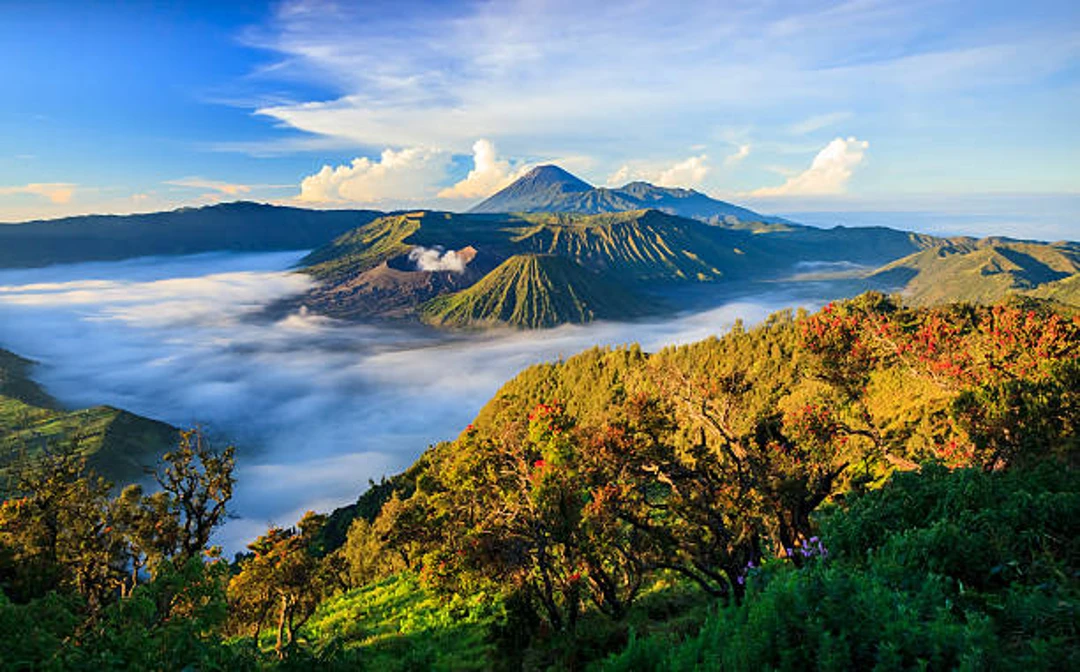
Why Visit Java Island?
Java is one of the most diverse islands in Indonesia. As the nation’s economic and political center, it is home to both the modern metropolis of Jakarta and serene, rural landscapes.
Visitors will find a variety of experiences on this island: vibrant city life, ancient cultural sites, beautiful natural attractions, and a glimpse into Indonesia’s deep-rooted traditions.
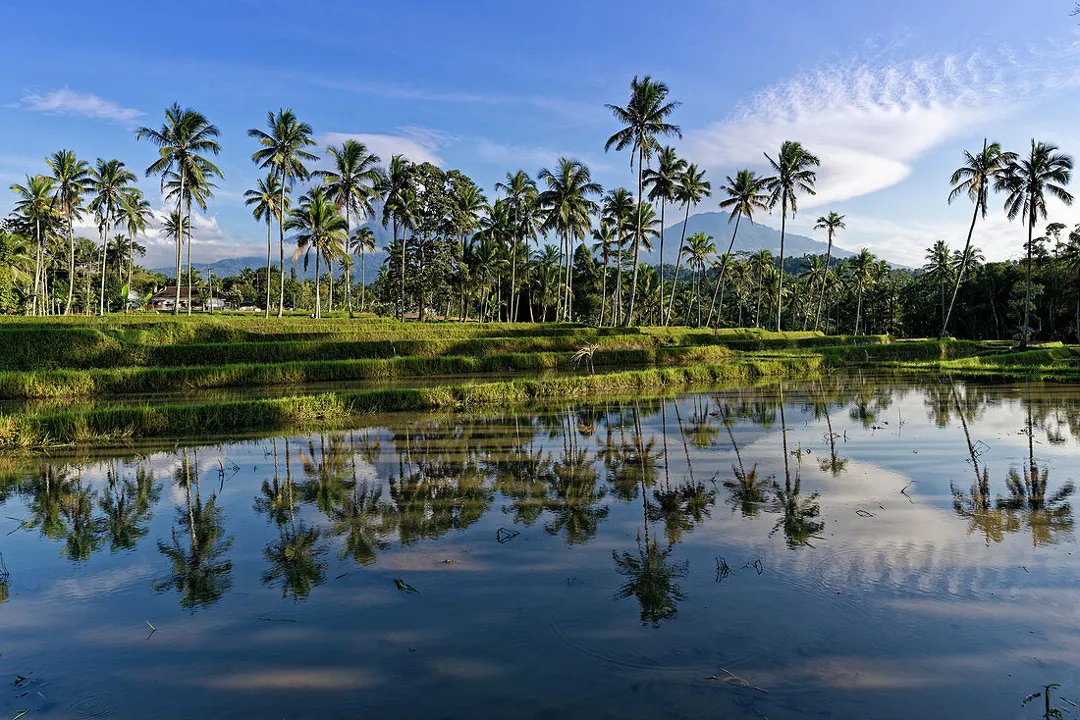
Java’s significance also lies in its history. It has been home to powerful kingdoms, including the Majapahit and Mataram, whose influences are still evident today in the island’s temples, culture, and architecture.
With such a rich cultural tapestry, Java offers a fascinating blend of old and new, making it a must-see destination for any traveler to Indonesia.
Top Attractions in Java Island
Jakarta
In the capital city of Indonesia, Jakarta, a bustling metropolis combines modern skyscrapers with historical sites in a dynamic blend.
This city presents contrasts where traditional markets neighbor upscale malls, and old Dutch colonial buildings exist alongside contemporary designs.
Key attractions include the National Monument (Monas), the Istiqlal Mosque, and the historic area of Kota Tua.
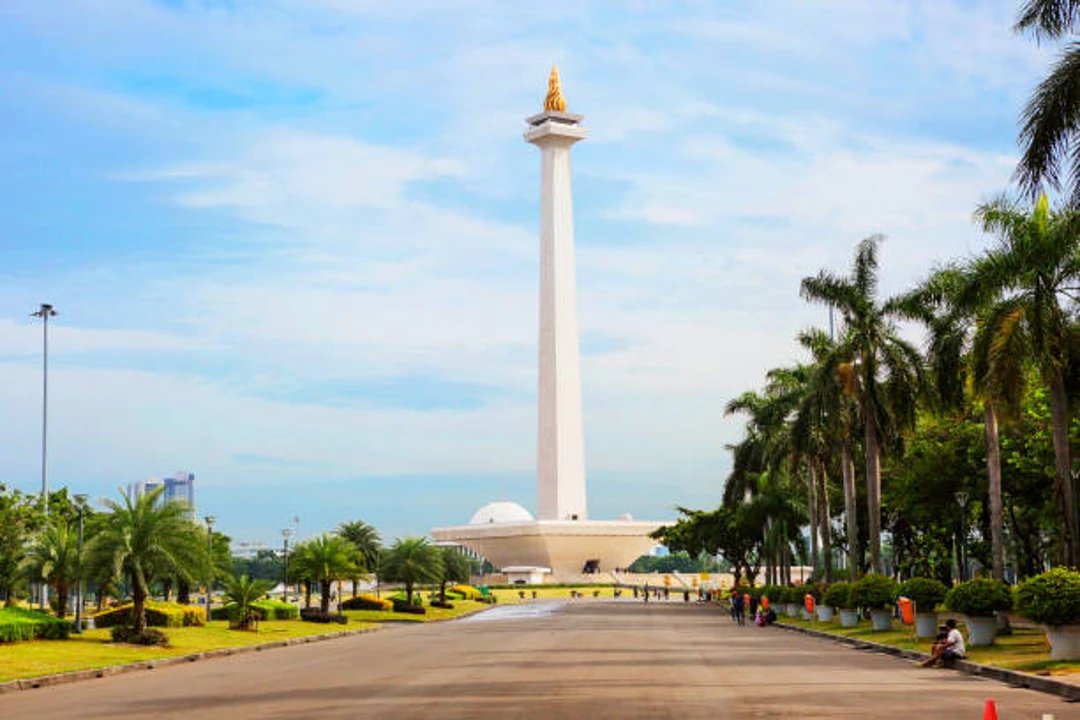
Yogyakarta
Yogyakarta Known as Indonesia’s cultural heart, Yogyakarta or “Jogja” amazes with its artistic, traditional, and historical riches.
Explore the grand Borobudur Temple, the largest Buddhist monument globally, or Prambanan, a stunning Hindu temple complex.
Yogyakarta is also famous for its lively street life, art galleries, and traditional shows like the Wayang Kulit shadow puppets.
Bromo Tengger Semeru National Park
For adventurers, Bromo Tengger Semeru National Park is a must-see. Hosting Mount Bromo, a notable Indonesian volcano, it offers breathtaking scenery, including the famous “sea of sand.”
Witnessing sunrise at Mount Bromo is unforgettable, offering spectacular views of the surrounding volcanic peaks.
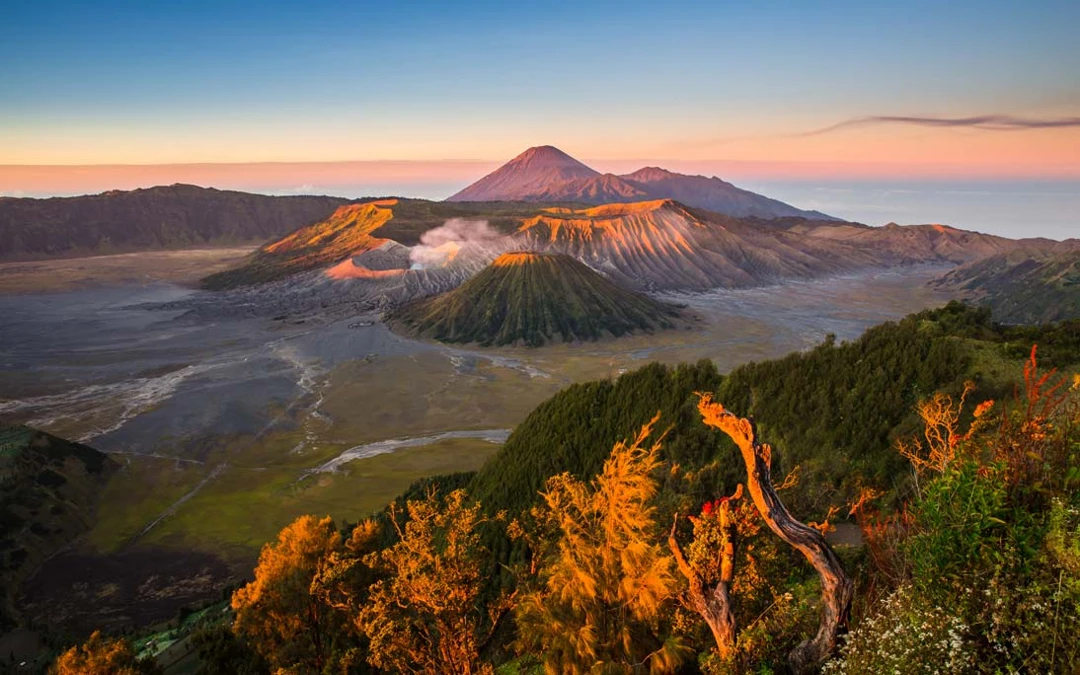
Borobudur Temple
Near Yogyakarta, Borobudur Temple stands as a UNESCO World Heritage site and a major cultural landmark in Indonesia.
Constructed in the 9th century, this vast Buddhist temple boasts intricate carvings and serves as a pilgrimage center.
It’s particularly stunning at sunrise when the morning light beautifully illuminates the stonework.
Prambanan Temple
Also a UNESCO World Heritage site, Prambanan features a Hindu temple complex with tall, graceful spires.
Dedicated to the deities Shiva, Vishnu, and Brahma, the temple’s carvings recount stories from Hindu epics like the Ramayana.
Located near Yogyakarta, it’s a must-see for history and culture fans.
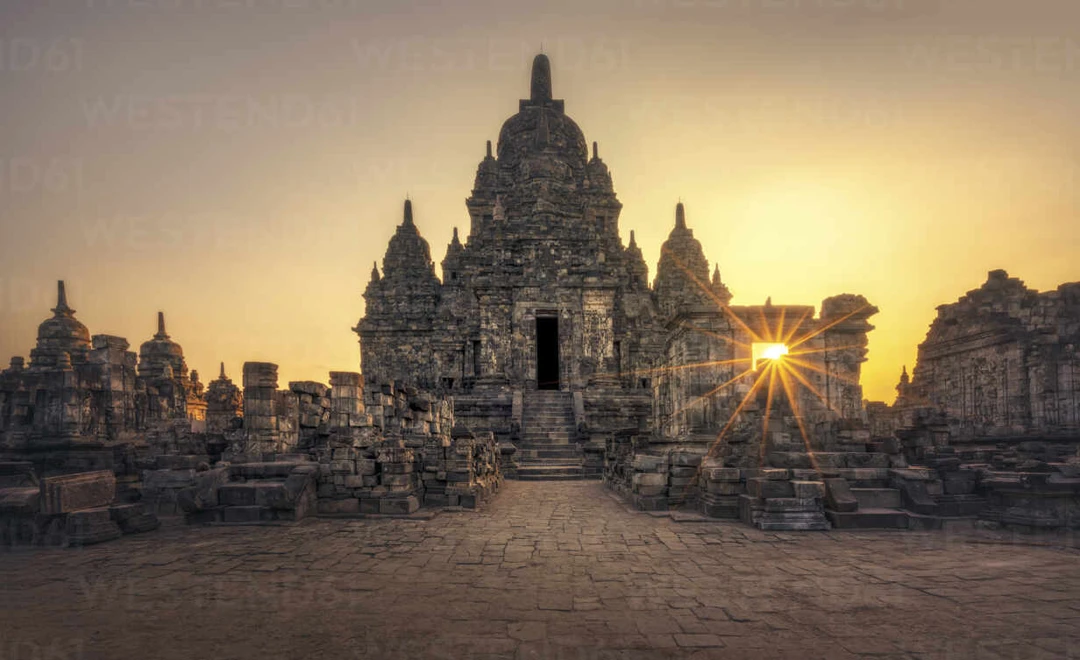
Kawah Ijen
For an exceptional natural encounter, Kawah Ijen stands out with its night-visible blue flames and active sulfur mining.
Reaching the rim of the volcanic crater, you can enjoy the breathtaking view of the emerald-green crater lake.
Bandung
Situated in the cooler highlands, Bandung provides a welcome escape from the warm temperatures of Java’s lowlands.
Famous for its tea plantations, art deco buildings, and lively culinary scene, it is an excellent destination to appreciate Indonesia’s natural attractions.
The nearby volcano, Tangkuban Perahu, is another must-visit spot where you can stroll along the edge of the crater.
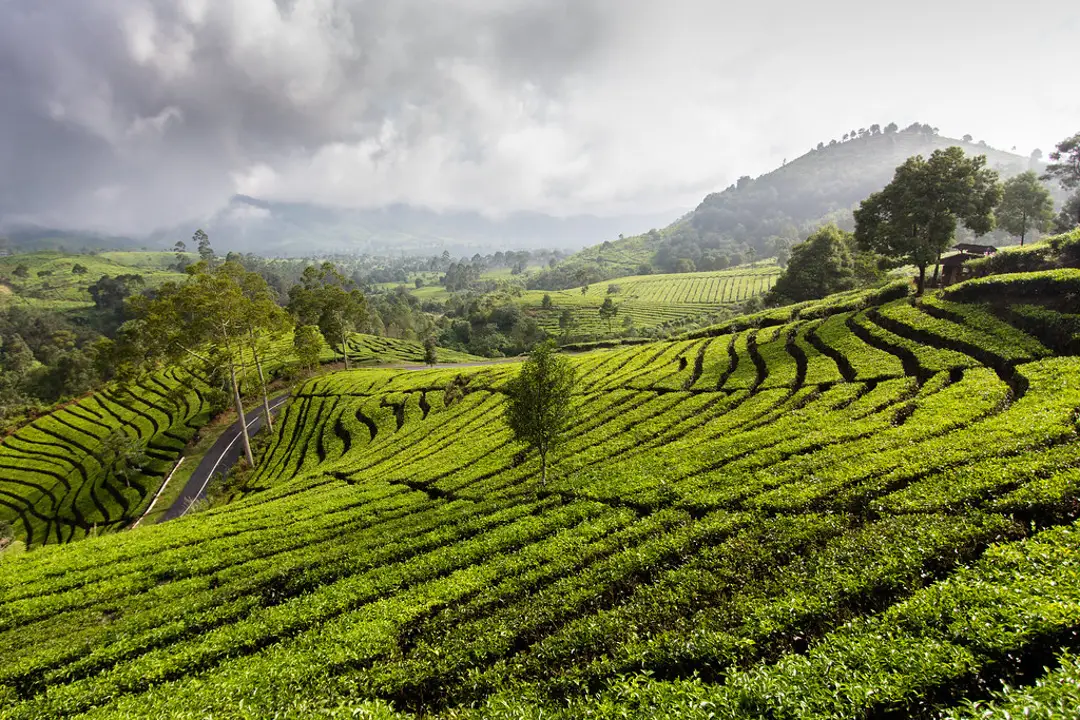
Cultural Insights
Javanese Culture
Javanese culture blends traditional and contemporary influences. The island is known for its classical arts, including dance, batik, gamelan music, and wayang kulit (shadow puppetry).
In Yogyakarta, you can enjoy traditional performances and visit local art galleries presenting the work of Javanese artisans.
Local Cuisine
Java is a paradise for food enthusiasts. Be sure to try Nasi Goreng (fried rice), Gudeg (a sweet, slow-cooked jackfruit dish), and Sate (grilled skewered meat). Java's abundant street food scene offers dishes like Bakso (meatball soup) and Nasi Uduk (coconut rice).
Don’t forget to try Tempeh, a fermented soybean dish that originated in Java and remains a staple of Javanese cuisine.

Traditional Markets
Java's markets are vibrant with color, energy, and local goods. Pasar Beringharjo in Yogyakarta is an excellent place to purchase batik, handicrafts, and souvenirs.
Exploring these markets provides a unique perspective on local life and craftsmanship.
Outdoor Activities
Hiking and Volcano Exploration
Java, with its volcanic landscape, is an ideal destination for hikers. Iconic peaks such as Mount Bromo and Mount Merapi draw adventure travelers seeking breathtaking views and challenging ascents.
For an especially unique adventure, you can climb to Kawah Ijen's crater to see its renowned blue flames at night.
Beaches and Waterfalls
Java is also home to stunning beaches and waterfalls. Pangandaran is a favored beach spot known for its calm waves and local seafood. Hidden away near Malang, the Tumpak Sewa Waterfall is a treasure for waterfall lovers, encircled by rich jungle foliage.
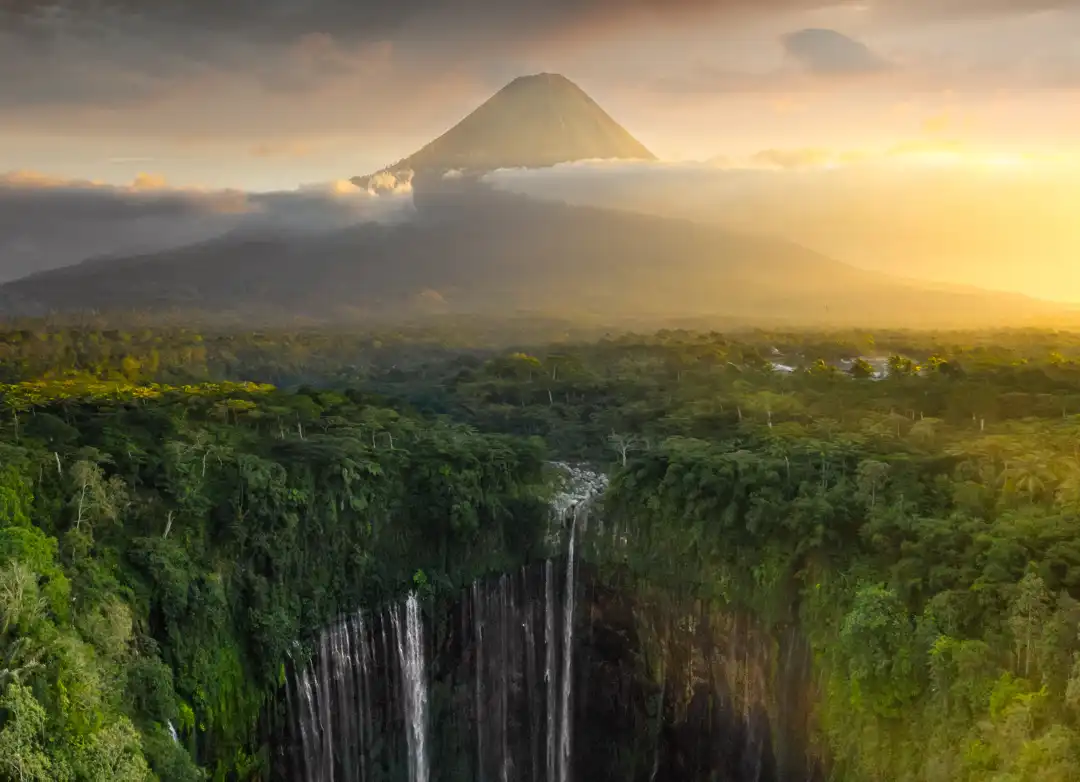
Rice Terraces and Nature Walks
Java’s countryside boasts remarkable natural beauty. The Cimanggu Rice Terraces in West Java offer a peaceful setting to enjoy the lush landscape and observe traditional farming practices.
Many areas also provide nature walks where you can take in Java’s diverse plant and animal life.
Travel Tips for Visiting Java
Ideal Time to Travel to Java
The dry season, spanning from May to September, is considered the ideal period to travel to Java. During this time, cooler and more agreeable weather makes it perfect for outdoor activities and exploring tourist attractions.
Conversely, the rainy season lasts from November to March, bringing heavy rains that could complicate travel efforts.
Transportation Options
Navigating Java is relatively straightforward, thanks to its extensive network of trains, buses, and taxis. The train system provides a hassle-free method to move between major cities like Jakarta, Yogyakarta, and Surabaya.
In more remote areas, renting a private car or relying on local transport, such as ojeks (motorbike taxis), is a common practice.
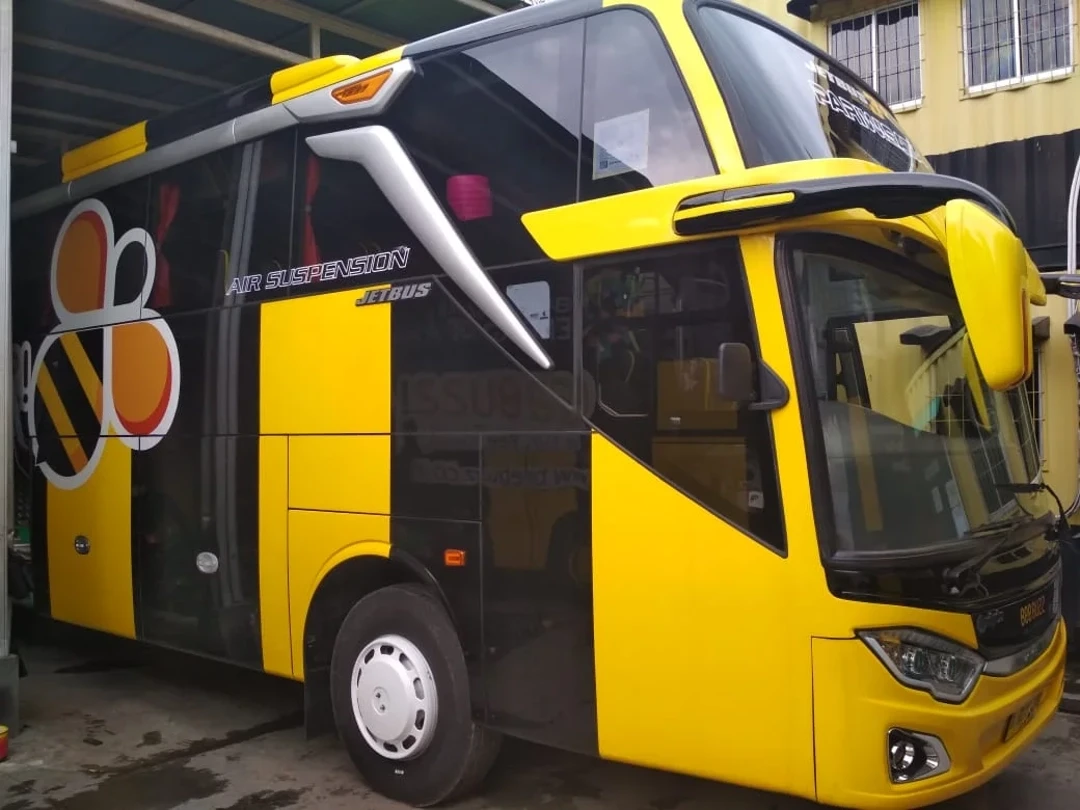
Safety Tips
Java is generally safe for tourists, though it's vital to adhere to essential travel safety protocols. Keep a watchful eye on personal belongings, especially in bustling places like Jakarta's markets or malls.
It's also important to honor local customs and dress conservatively, especially when visiting religious sites like temples.
Conclusion
Java Island is an amazing place that showcases the diverse culture of Indonesia. If you’re into history, nature, or culture, Java has something for you.
The combination of lively cities, historic temples, stunning landscapes, and friendly locals makes a trip to Java truly memorable.
